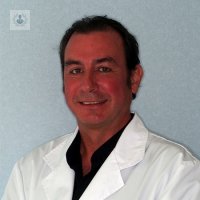Before and after surgery salivary gland
Written by:There are four types of addressing the problems of the salivary glands. On the one hand, endoscopy aimed at diagnosing and treating obstructive problems as constrictions of conduits and obstructions stone formation. On the other hand, resective surgery aims removal of the gland affected by problems or chronic inflammatory tumor type. Biopsy, however, serves to identify local or systemic problems such as rheumatic diseases. Finally, the change in position of the outlet ducts saliva is performed in patients with neurological problems and increased saliva production.
There also exists the possibility of treatment of salivary gland stones shockwave as in the case of the kidney.
What patients this intervention is recommended in the salivary glands?
For patients with tumor problems surgical approach is necessary with removal. If it is an inflammatory or obstructive problem always it will try to be as conservative as possible in the approach.
When the tumor develops cancer salivary gland requires complementary treatment.
What risks may involve the operation of the salivary glands?
The most feared risk is the appearance of an alteration of the facial nerve and its branches, usually transient, and it is due to the close relationship with both the nerve and the parotid gland submandibular. Occasionally an accumulation of saliva which gradually gives way, in cases where it has been a partial removal of the gland is presented.
There is likewise a problem in the case of skin reinnervation aberrantly where sweating occurs at the time of intake. Good design scar by the specialist in Oral and Maxillofacial Surgery minimizes the risk of unsightly scar, although some may perceive collapse of the removal area. In the case of a removal of a calculation made cicatriciales duct strictures or new stone formation may occur.
What care should follow the patient after the operation of the salivary glands? 
The patient does not need special care in the postoperative period, which is handled with the usual medications (antibiotics and anti-inflammatory). For a good aesthetic result sunscreen and the use of gels or silicone sheets is recommended.
When you can recover its usual pace food?
Gradually, can lead a normal diet in about a week.


